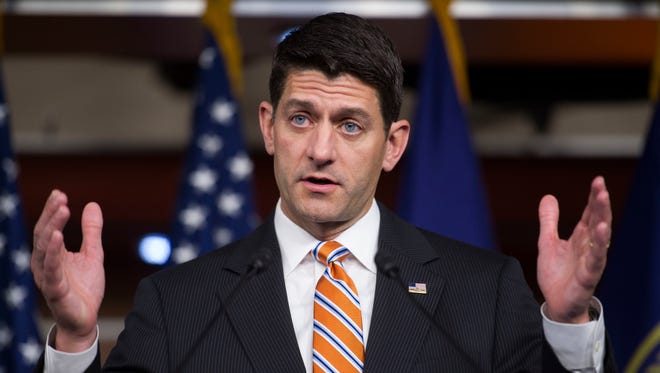Will Republicans ever stop defending Donald Trump?
James Comey's testimony didn't jolt them, but political consequences might.

Perhaps the most remarkable thing about Donald Trump’s presidency is the apparent loyalty he still inspires among those who voted for him and the Republican rank-and-file generally. That was true before former FBI director James Comey's stunning testimony to Congress under oath last week and, equally stunning, it's largely still true now.
It is obvious that the normal methods used in the past to control presidents — exposés and shaming in the news media, congressional investigations, being the constant butt of jokes by late-night comedians and so on — do not work with Trump. He has an amazing capacity not only to simply ignore criticism but also to continue to inspire rigid political loyalty among his entire party. The number of prominent Republicans willing to criticize Trump publicly is infinitesimally small. Those few Republican members of Congress who voice concerns about Trump, such as John McCain or Lindsey Graham, don’t follow through with action, and they continue to vote in lockstep for every Trump initiative and nominee.
It’s too easy to simply say that these people are political cowards who should show some backbone and do what’s right for their country. Any action requiring a politician to commit political suicide is a non-starter. The question is, when will Republicans conclude that it is in their political interest to oppose Trump? At what point does the political calculation switch from pro-Trump to anti-Trump among Republican politicians?
Obviously, there is a chance that the balance will never change. Republicans might conclude that they will either hang together or hang separately and decide to hang together no matter what. Or it could be that the Republican donor class will stick with Trump because the chances of getting what they really want from him — such as deregulation and tax cuts for the rich — are better than with any Democrat. And there might be enough fanatical Trump loyalists at the grass roots to put the fear of God in Republican officeholders who know that their hold on the nomination in a primary is tenuous no matter how easily they won the last general election.
Even so, one can conceive of circumstances short of impeachment or indictment that could cause the rats to start jumping ship.
Donald Trump supporters concoct their own James Comey story
First, Trump’s poll numbers could continue to sink to the point where they are dragging down Republicans running for re-election in 2018. They might feel that regardless of the risks of opposing Trump in a primary, they must break with him to have a chance in the general election. Come November, a year before the 2018 midterms, I’m betting some vulnerable Republicans will be forced to attack Trump to save their own skins.
Second, the donor class could conclude that Trump is poisoning the well, making achievement of their policy goals harder in the long run. If the Kochs, Mercers and Adelsons of the GOP come to believe that the party is better off without Trump than with him, the political balance could change dramatically, and very quickly.
Third, Republican political consultants and pollsters could become so alarmed about GOP prospects in 2018, they issue an “abandon ship” order to all their clients. They know far better than the general public that the same gerrymandering that put many Republicans in office is a double-edged sword that could lead to a GOP rout.
The public’s view is that gerrymandering creates safe seats for the party in power. This is wrong. It actually creates safe seats for the out-party (jamming as many of their voters as possible into the same district) in order to create as many winnable seats as possible for the in-party. A relatively small shift in votes in those districts could easily give Democrats control of the House starting in 2019.
POLICING THE USA: A look at race, justice, media
Two congressmen offer a bipartisan plan to 'drain the swamp'
I left the Republican Party 10 years ago to become an independent, but I know many Republicans who still belong to what I might call the Romney wing — conservatives who aren’t radicals, who don’t want to tear the whole government down to get their way, who remember when competent governance was the hallmark of GOP presidents.
Republicans like these only need a critical mass of like-minded party members to go public in order to join them. It would help if they had a prominent leader — Where have you gone, Colin Powell? A nation turns its lonely eyes to you — and an organization to represent them. But this could arise quickly and spontaneously if the demand is there.
I don’t believe that the Democrats can bring down Trump; I believe that Republicans can. But first they must become convinced that they don’t have any choice and won’t be committing political suicide if they do.
Bruce Bartlett is a political independent and former Republican who has worked for Ron Paul, Jack Kemp, Ronald Reagan, George W. Bush and the Heritage Foundation. His new book,The Truth Matters: A Citizen’s Guide to Separating Facts from Lies and Stopping Fake News in Its Tracks, will be published in October.Follow him on Twitter @BruceBartlett
You can read diverse opinions from our Board of Contributors and other writers on the Opinion front page, on Twitter @USATOpinion and in our daily Opinion newsletter. To submit a letter, comment or column, check our submission guidelines.